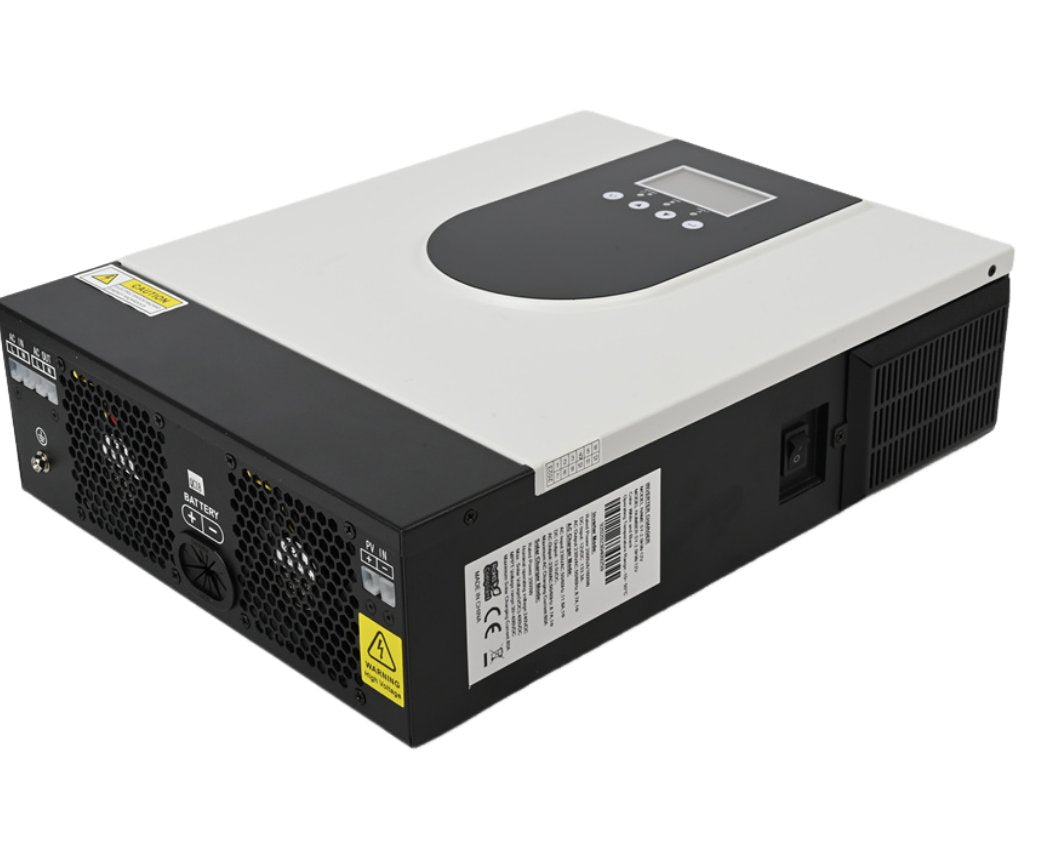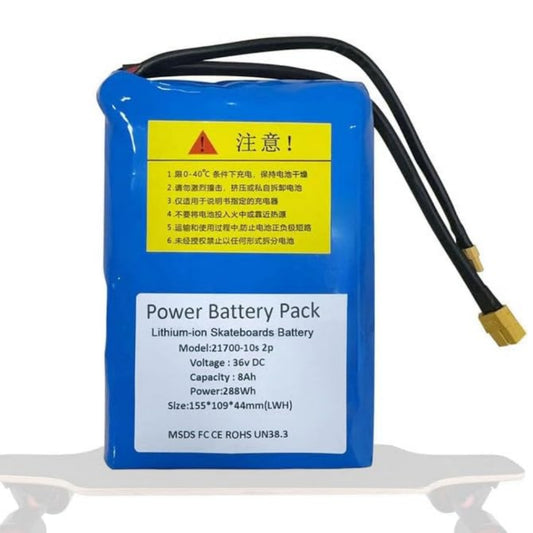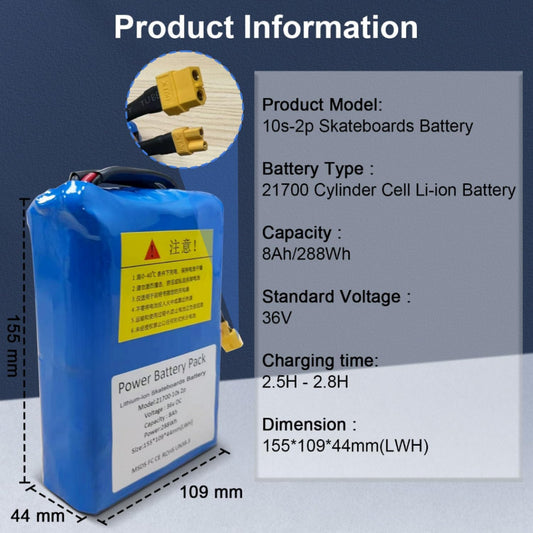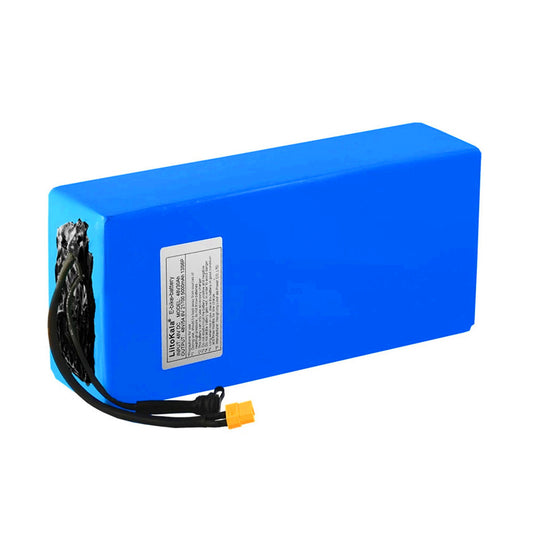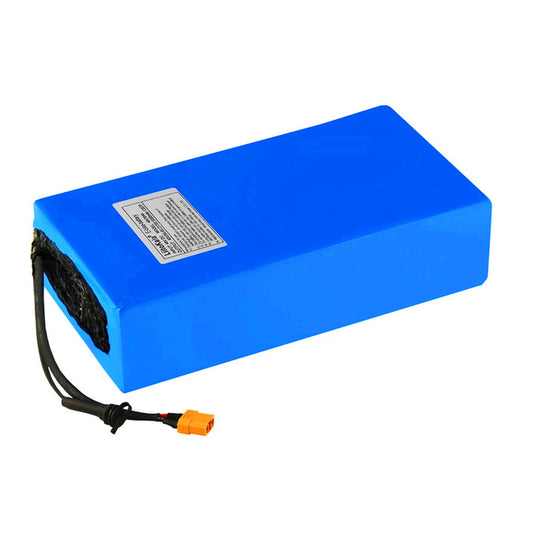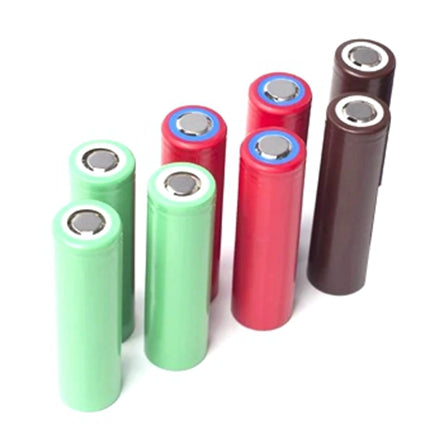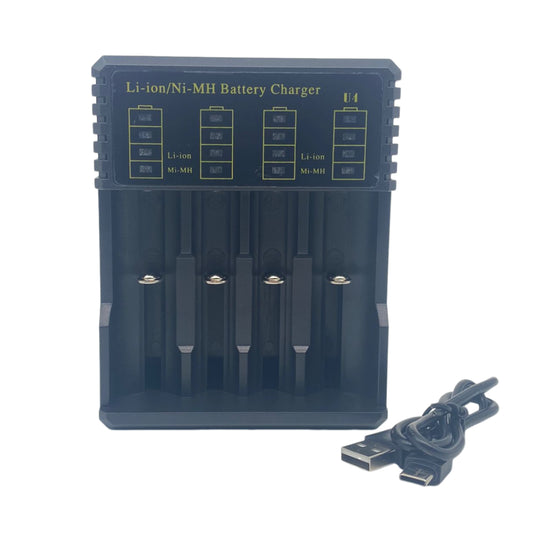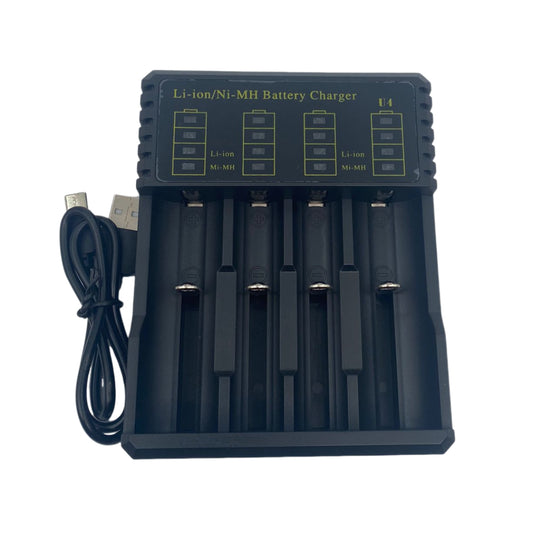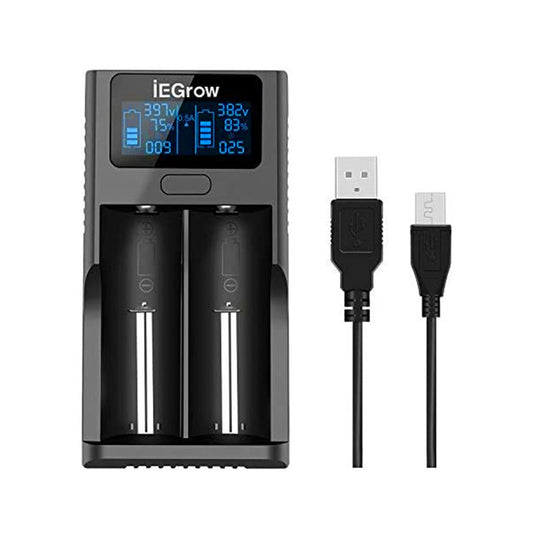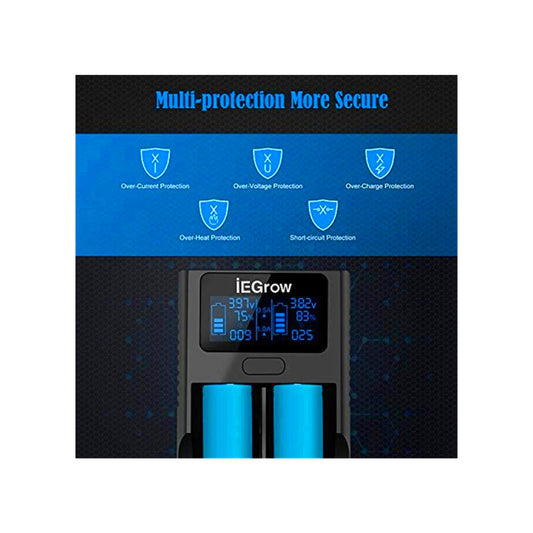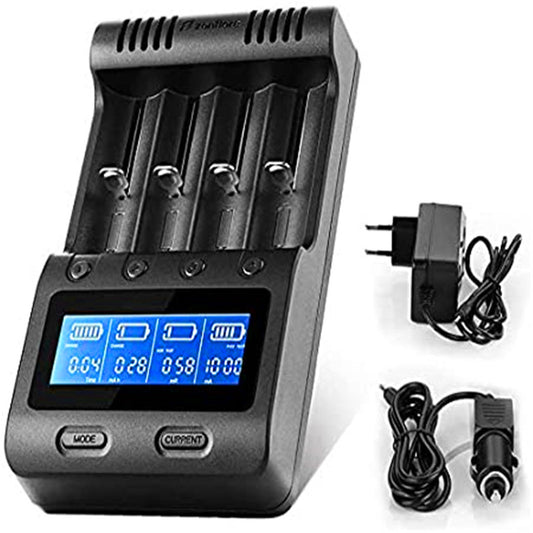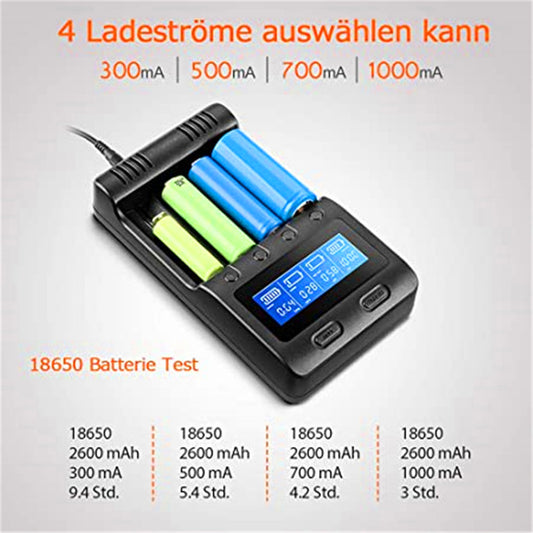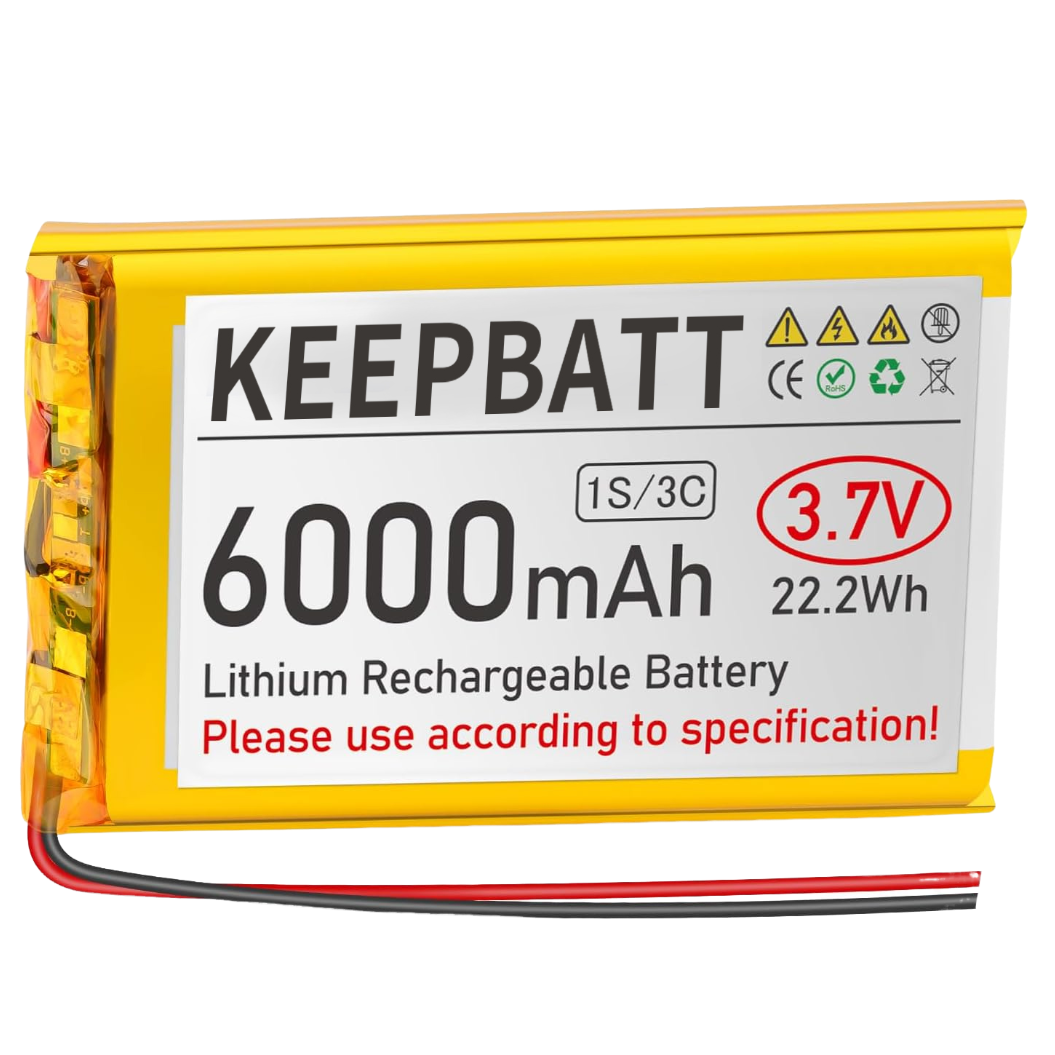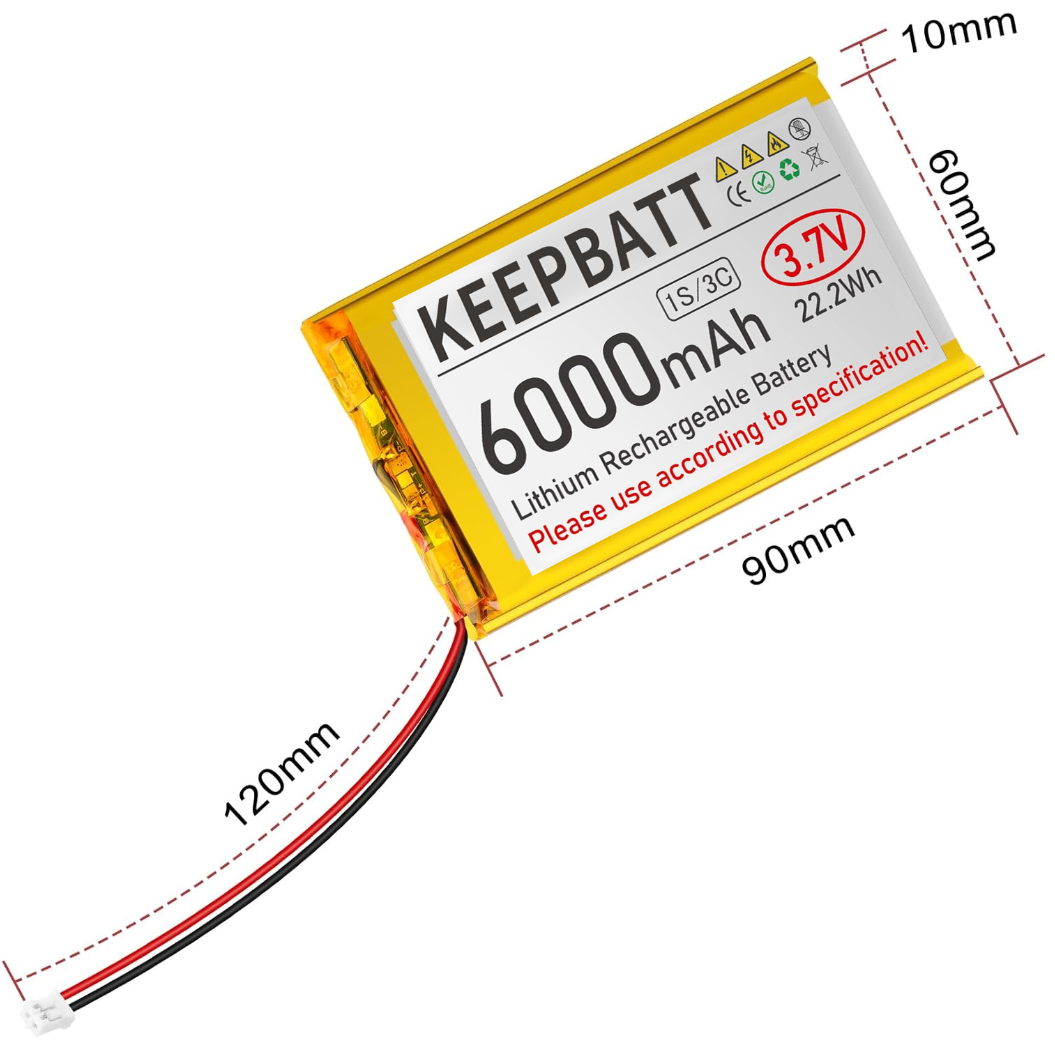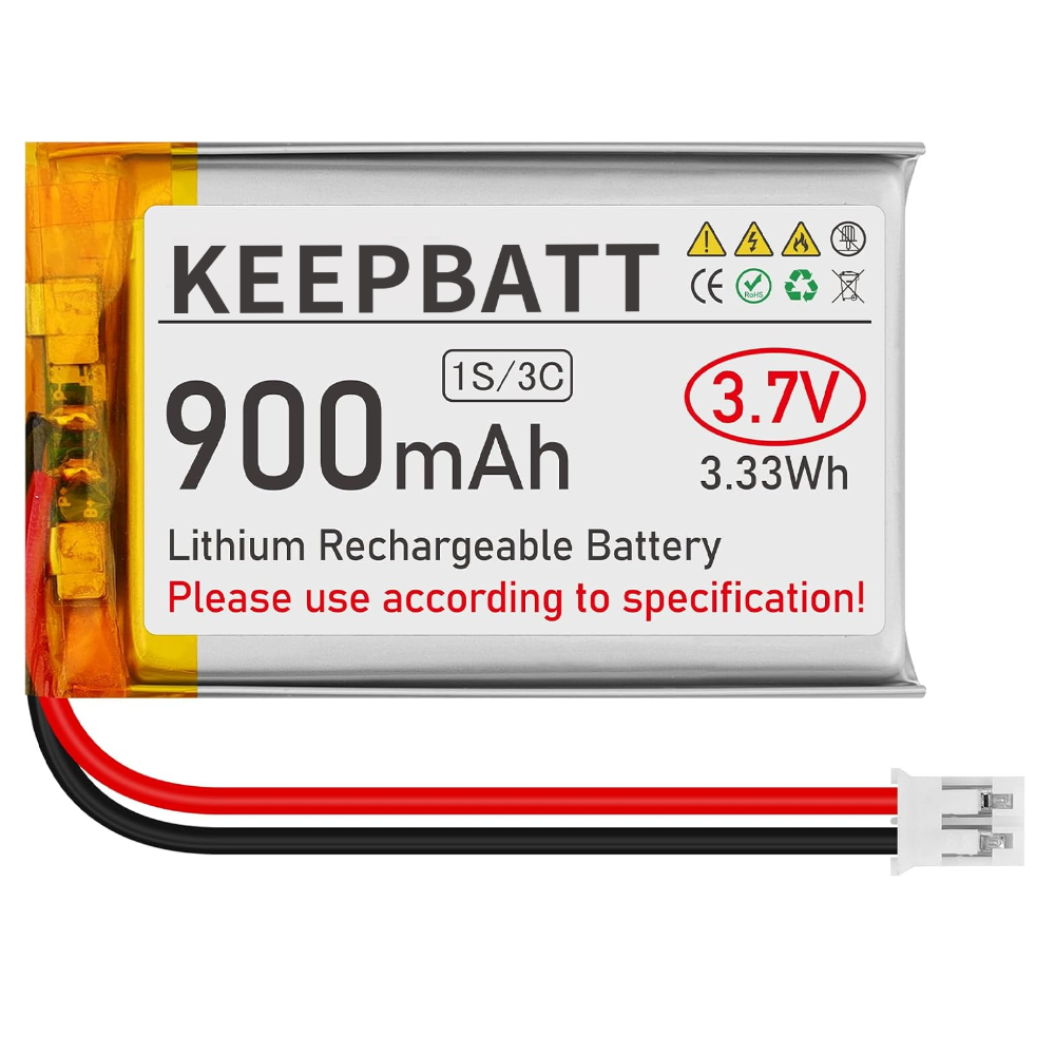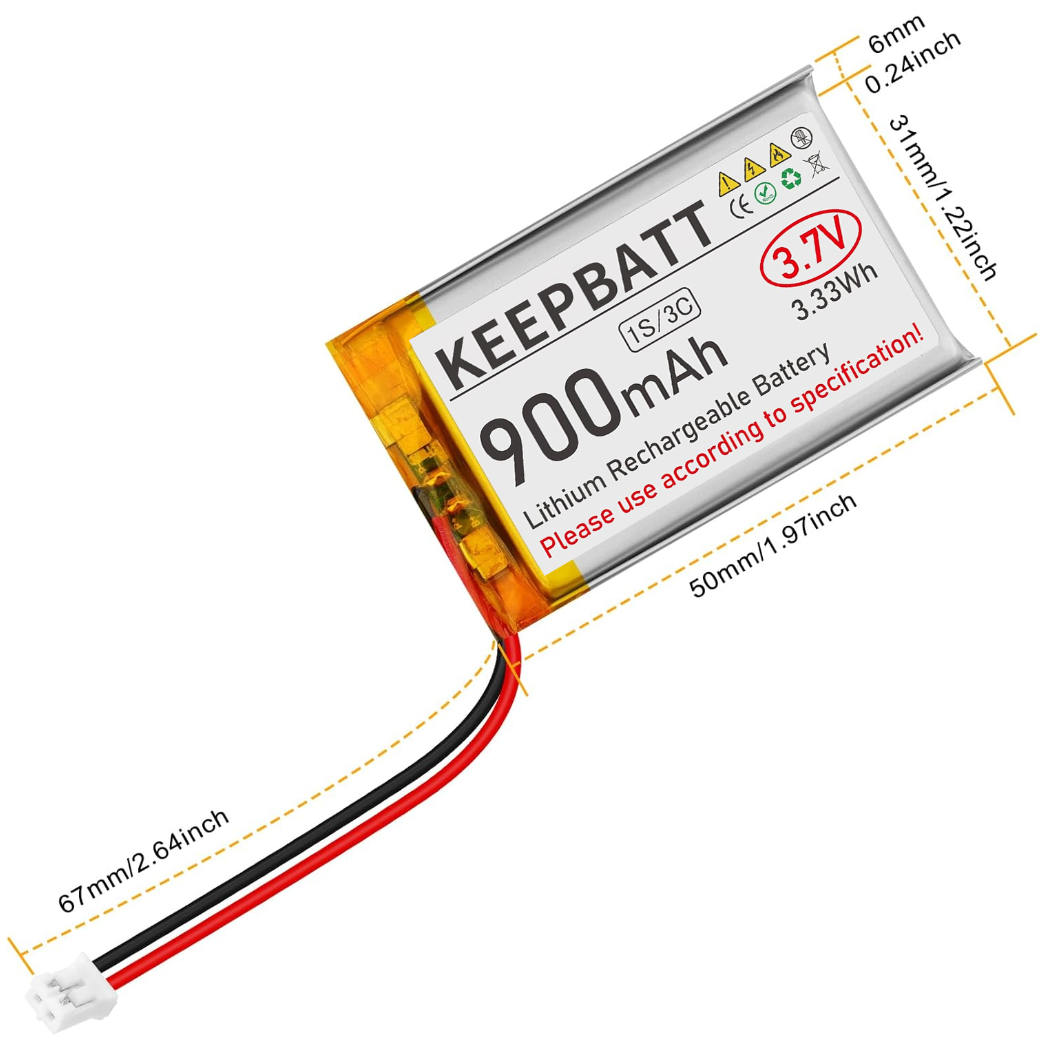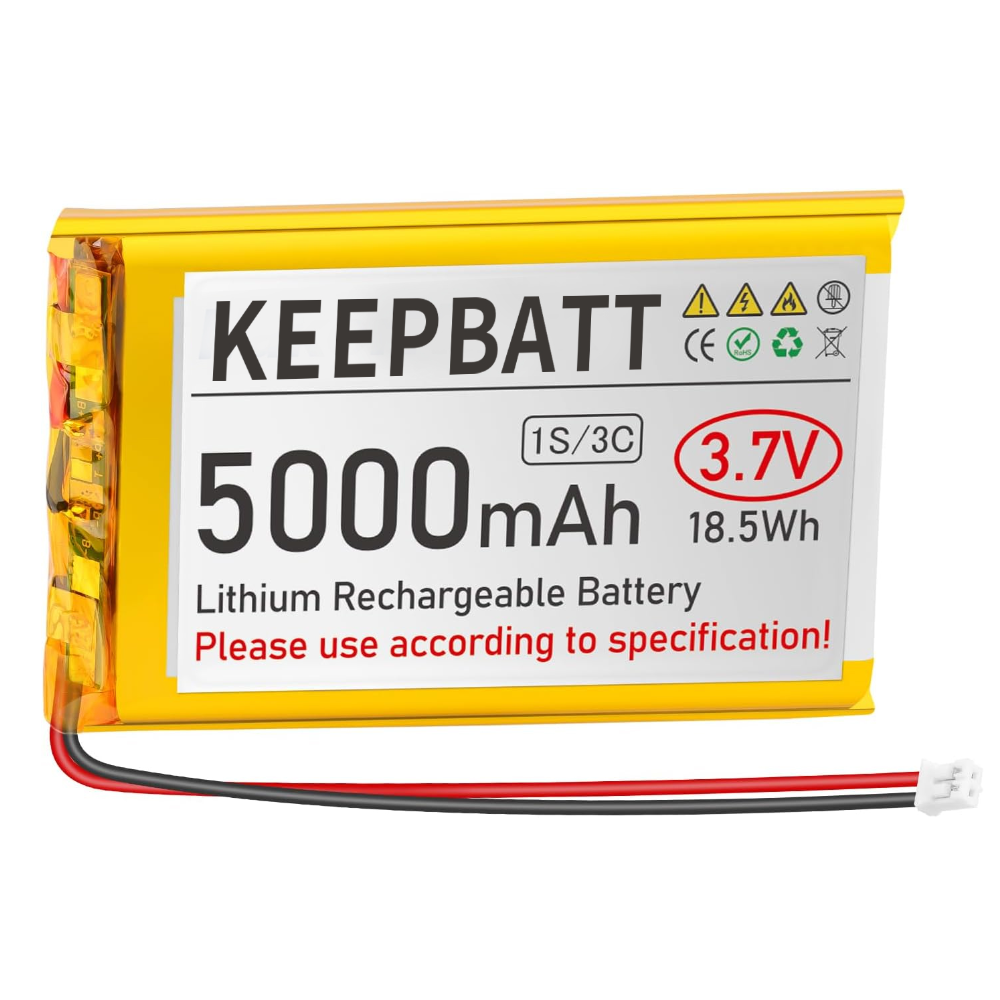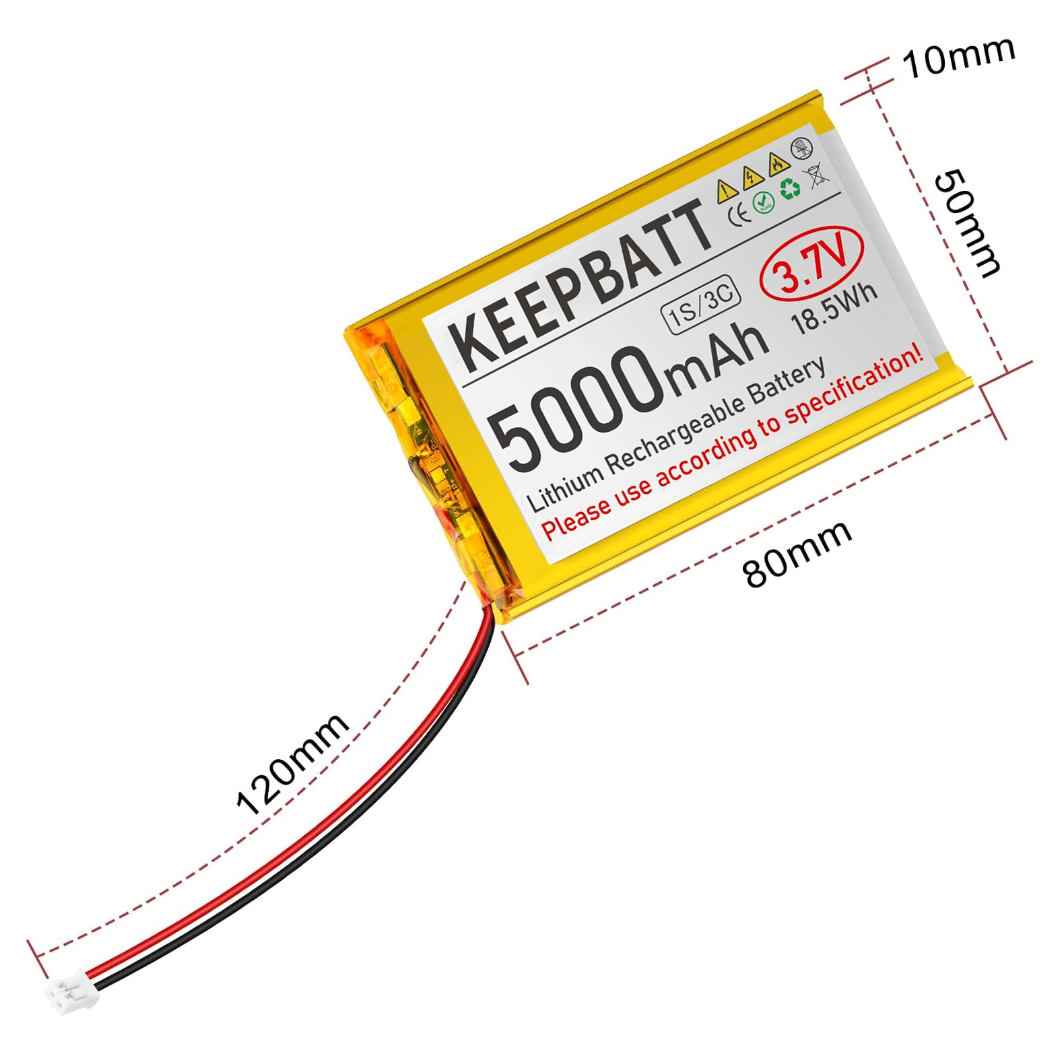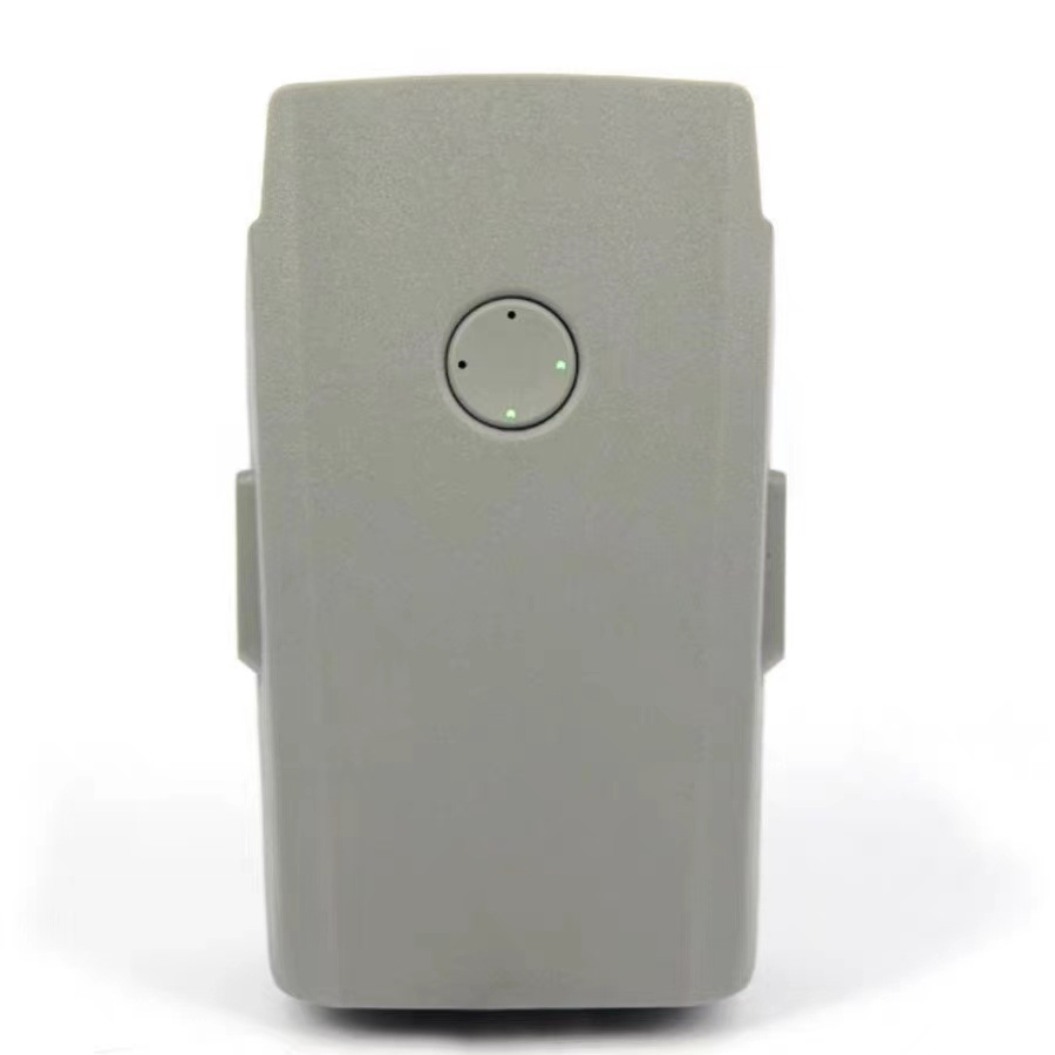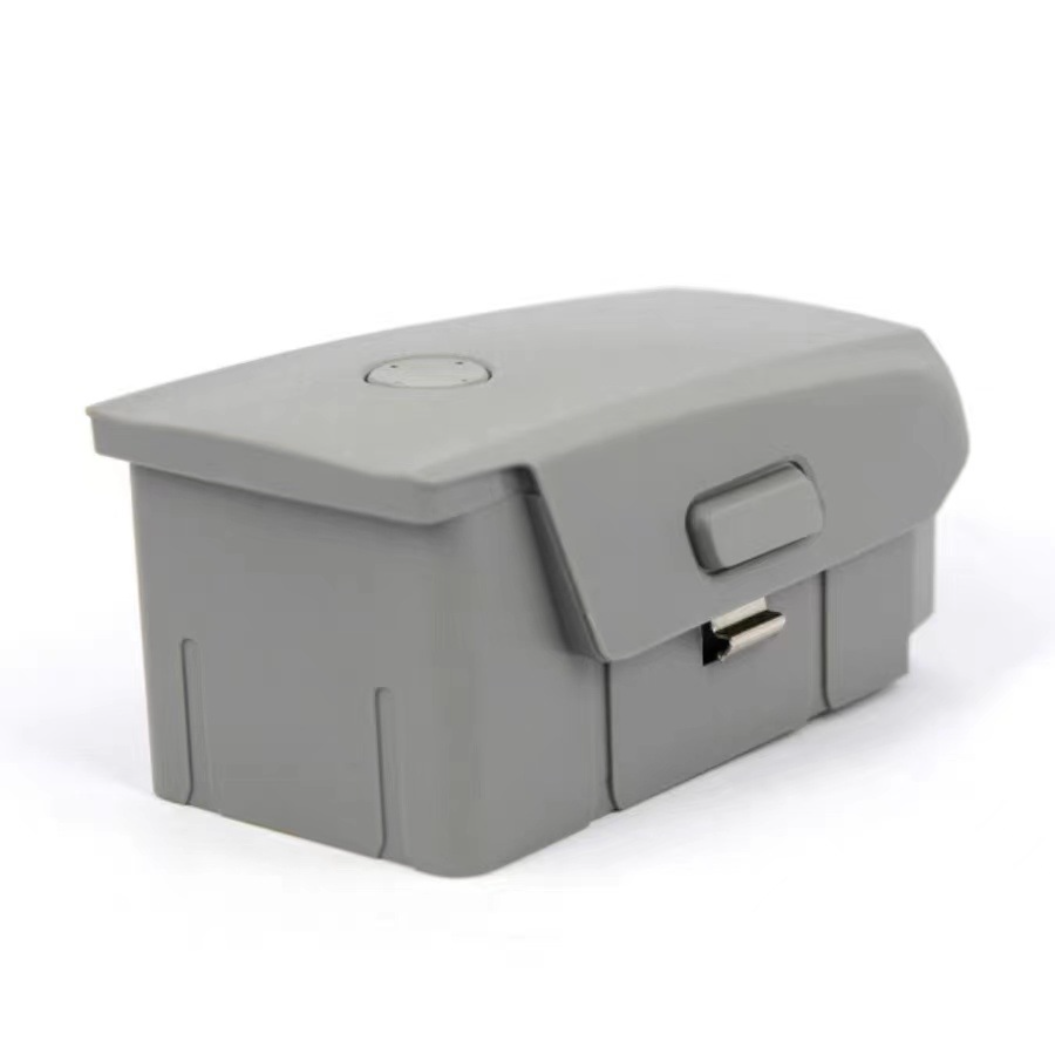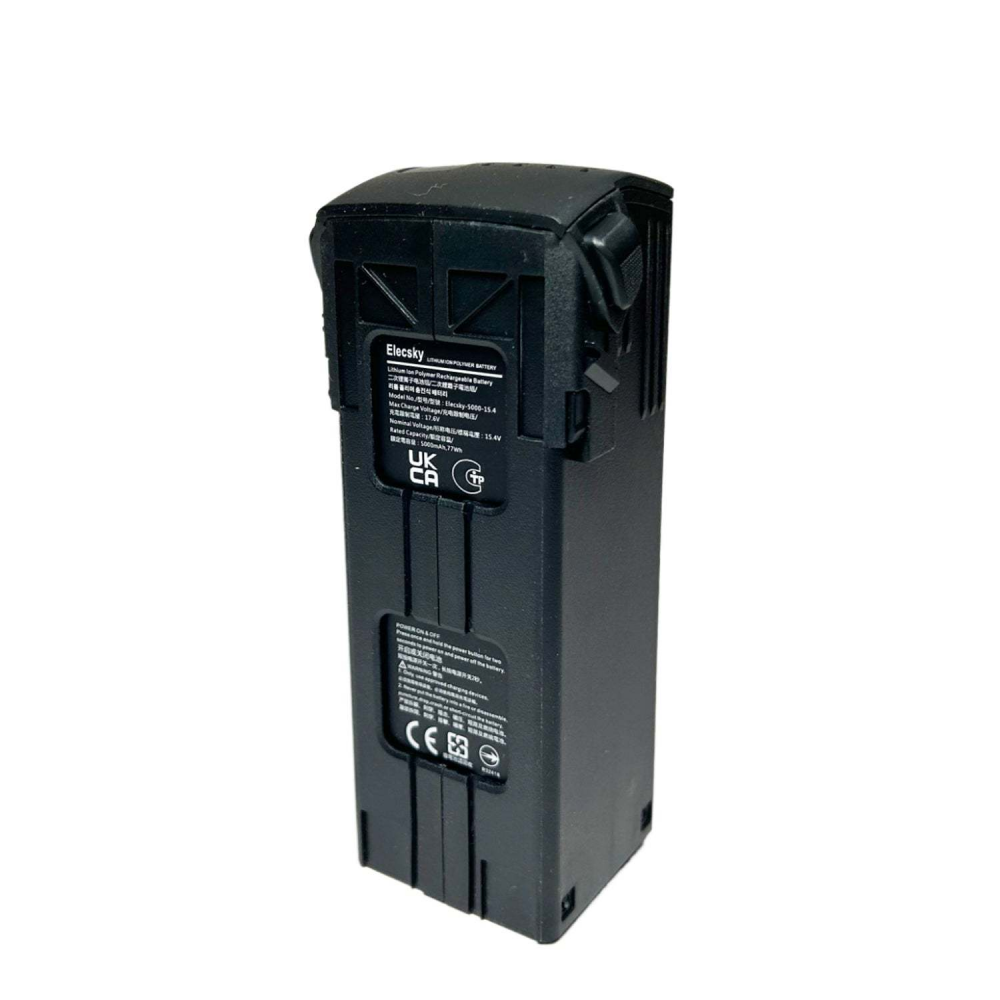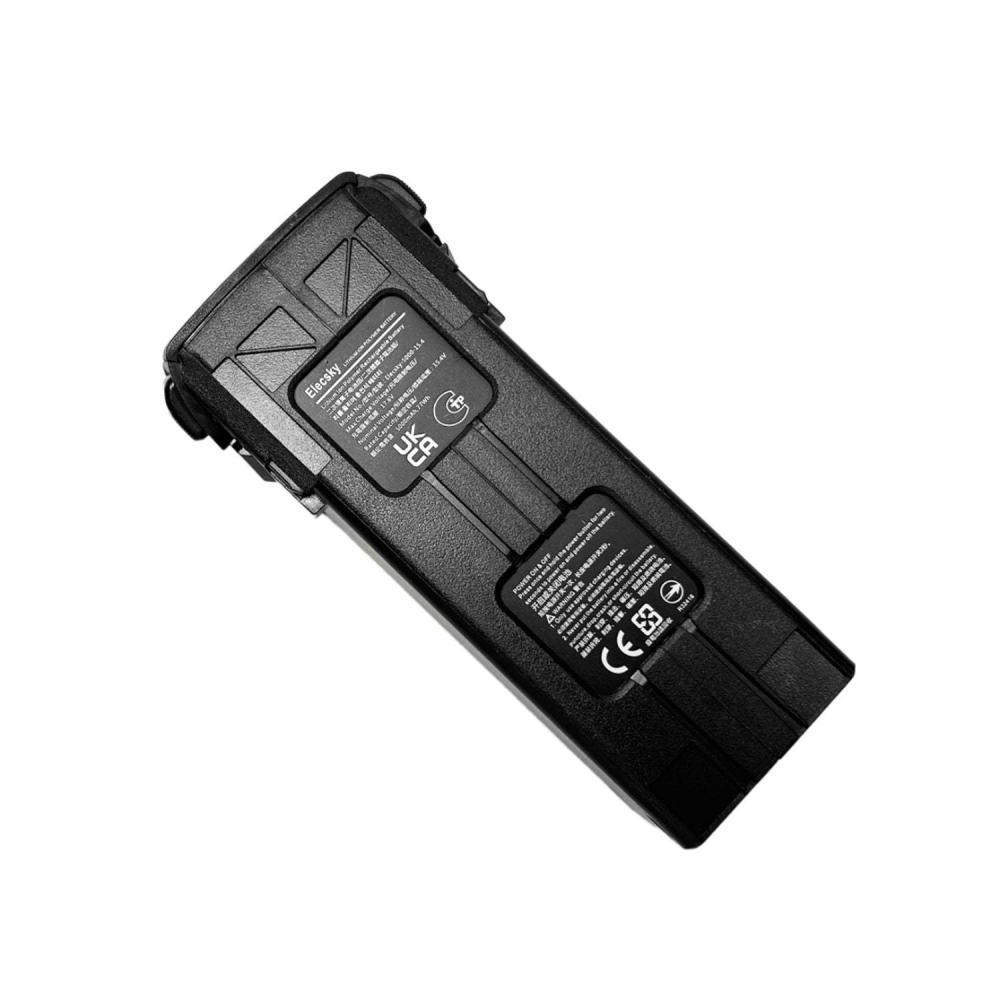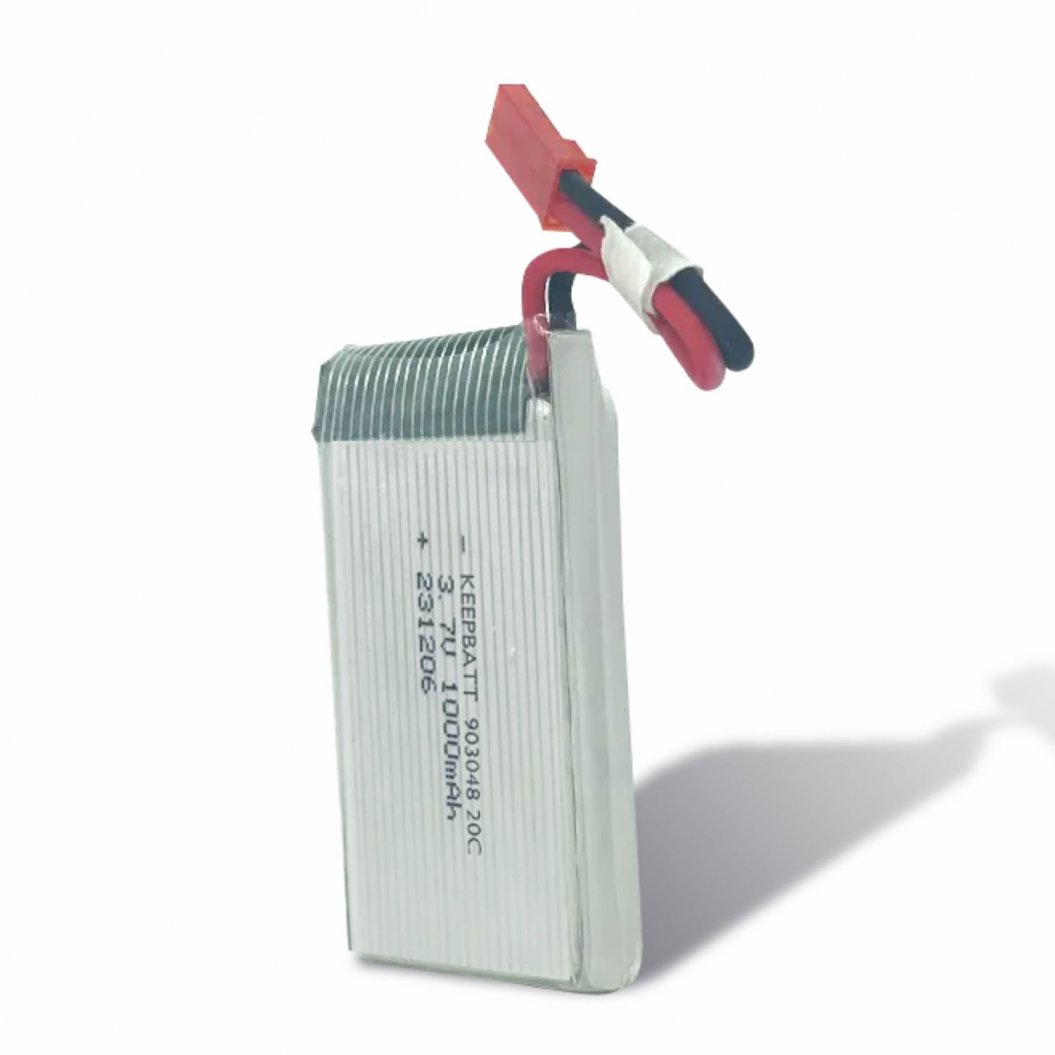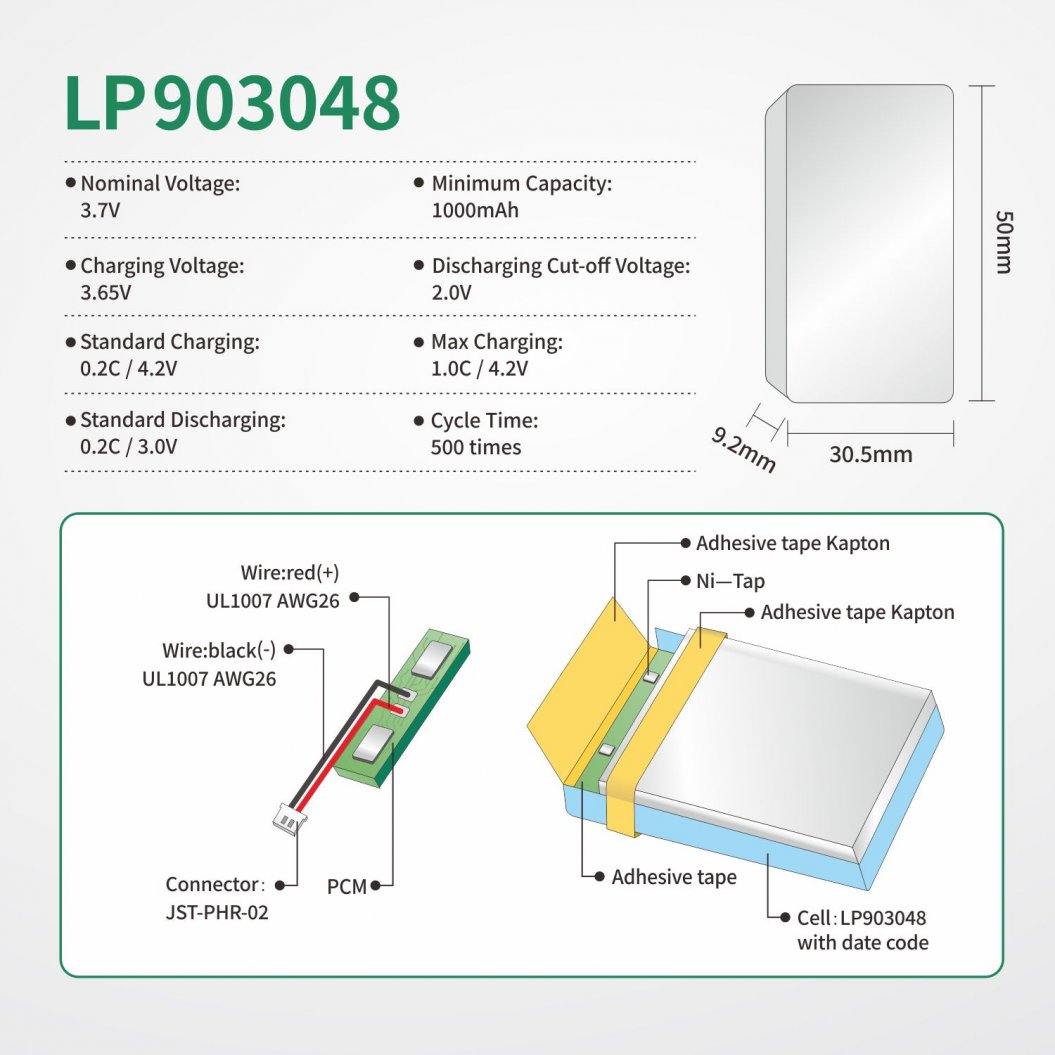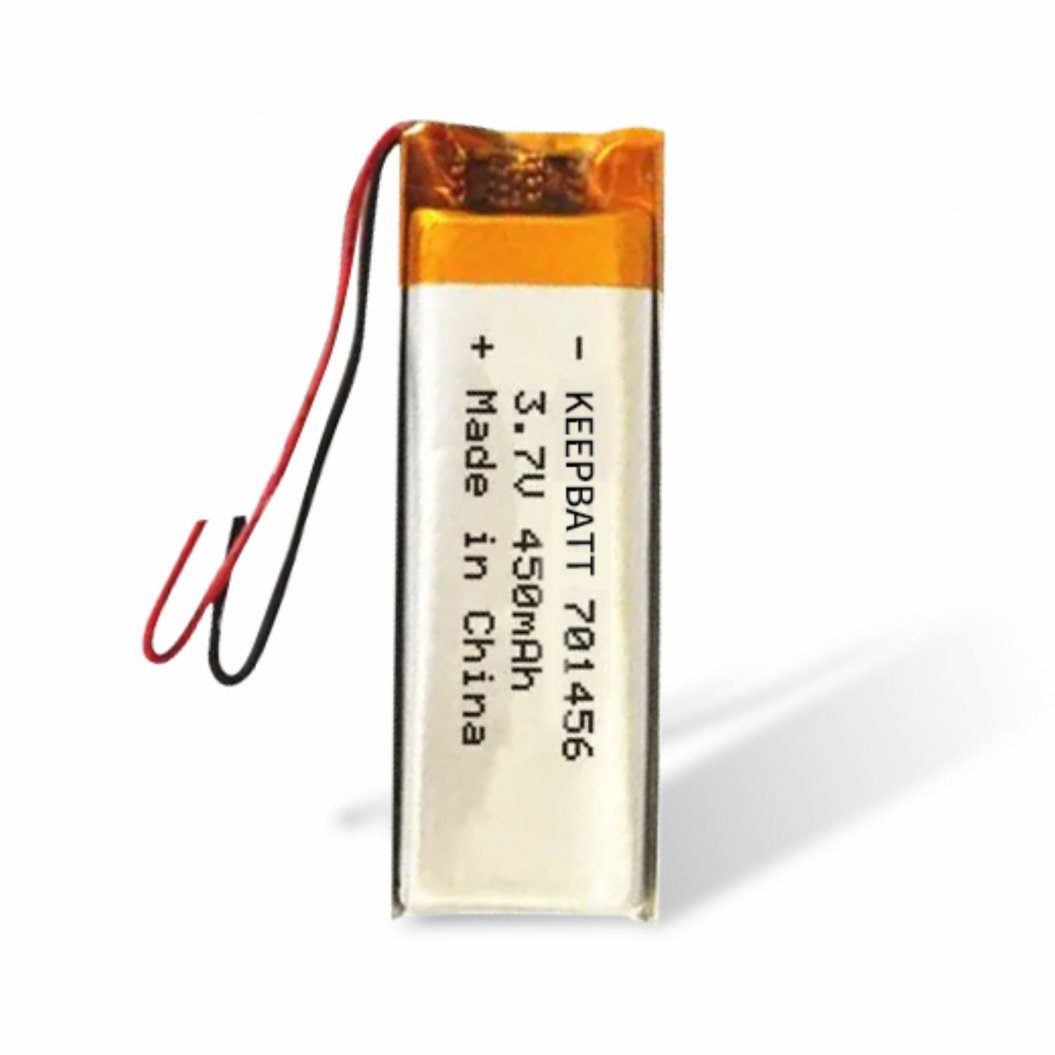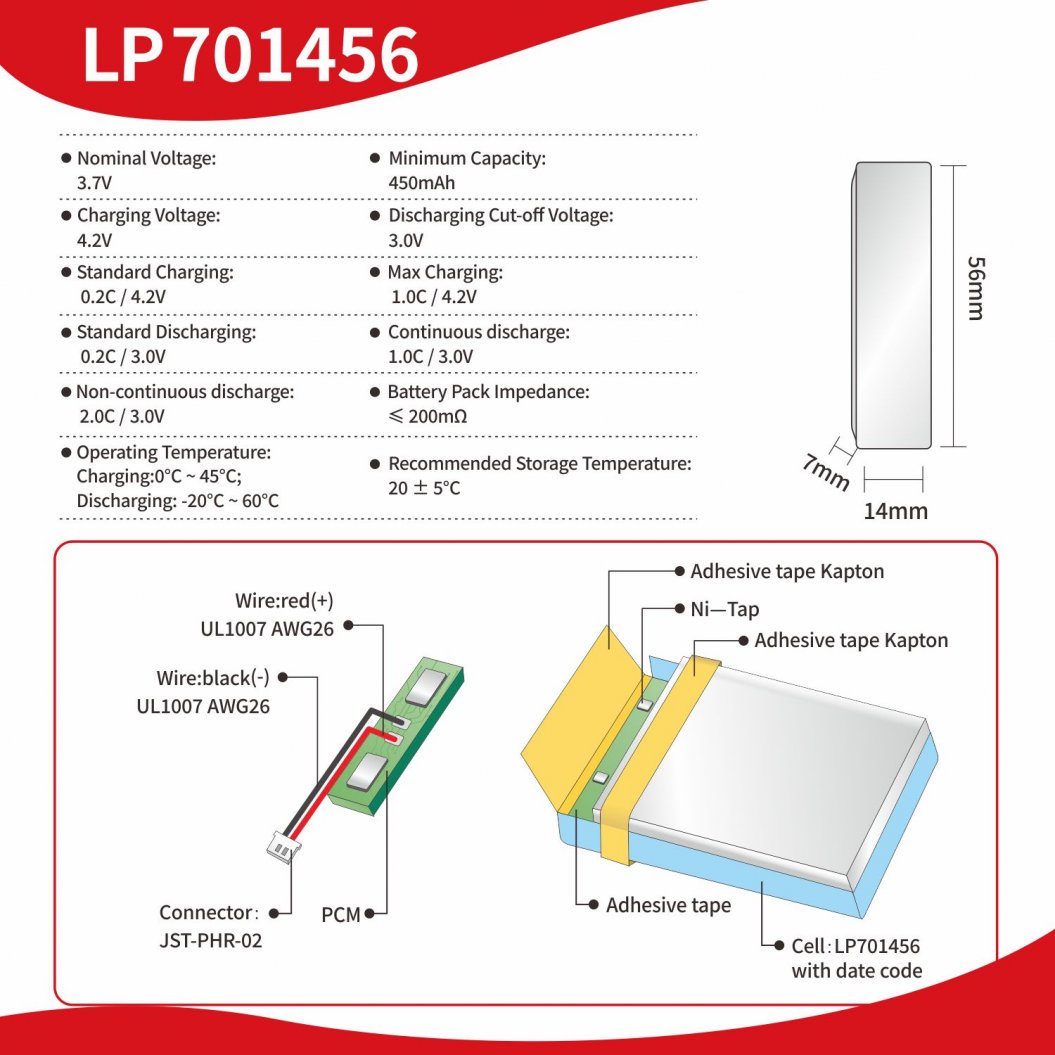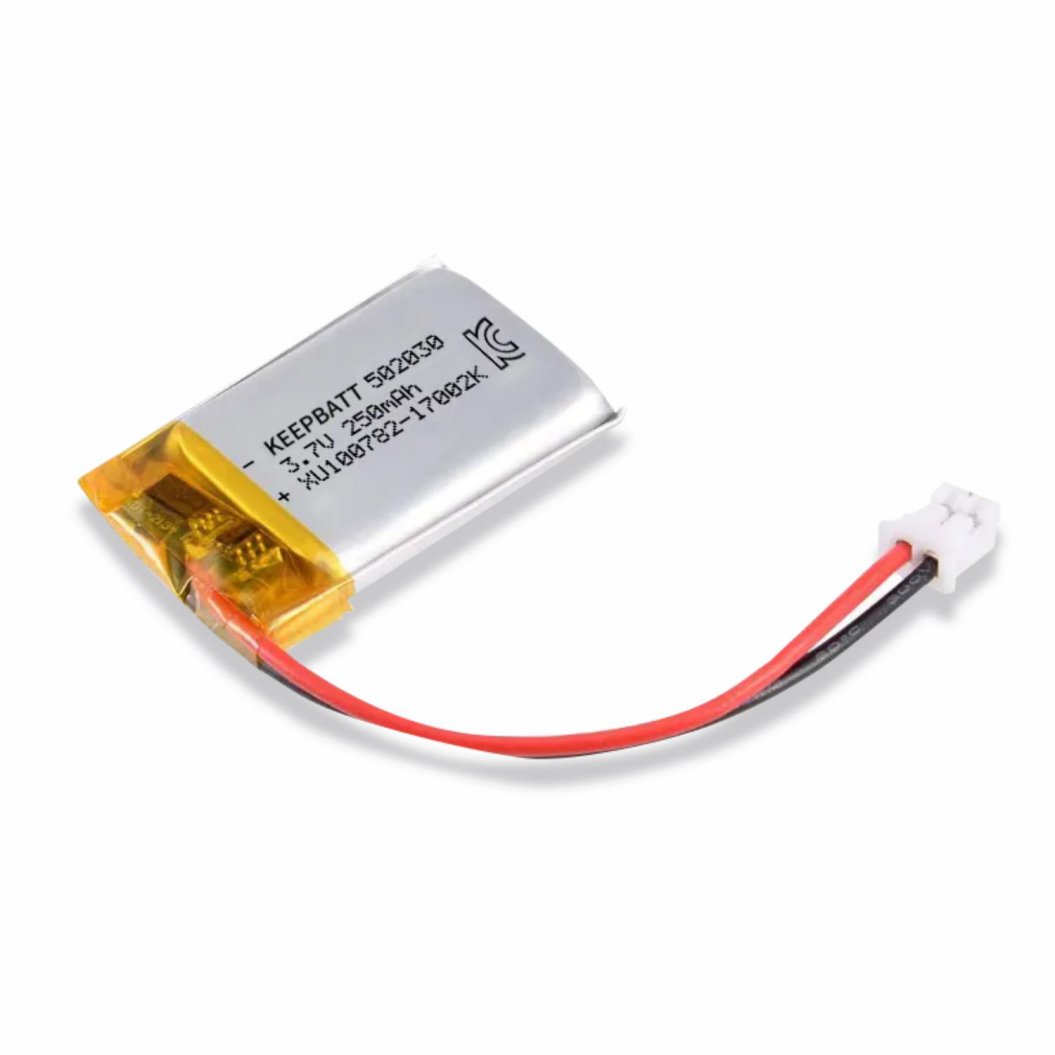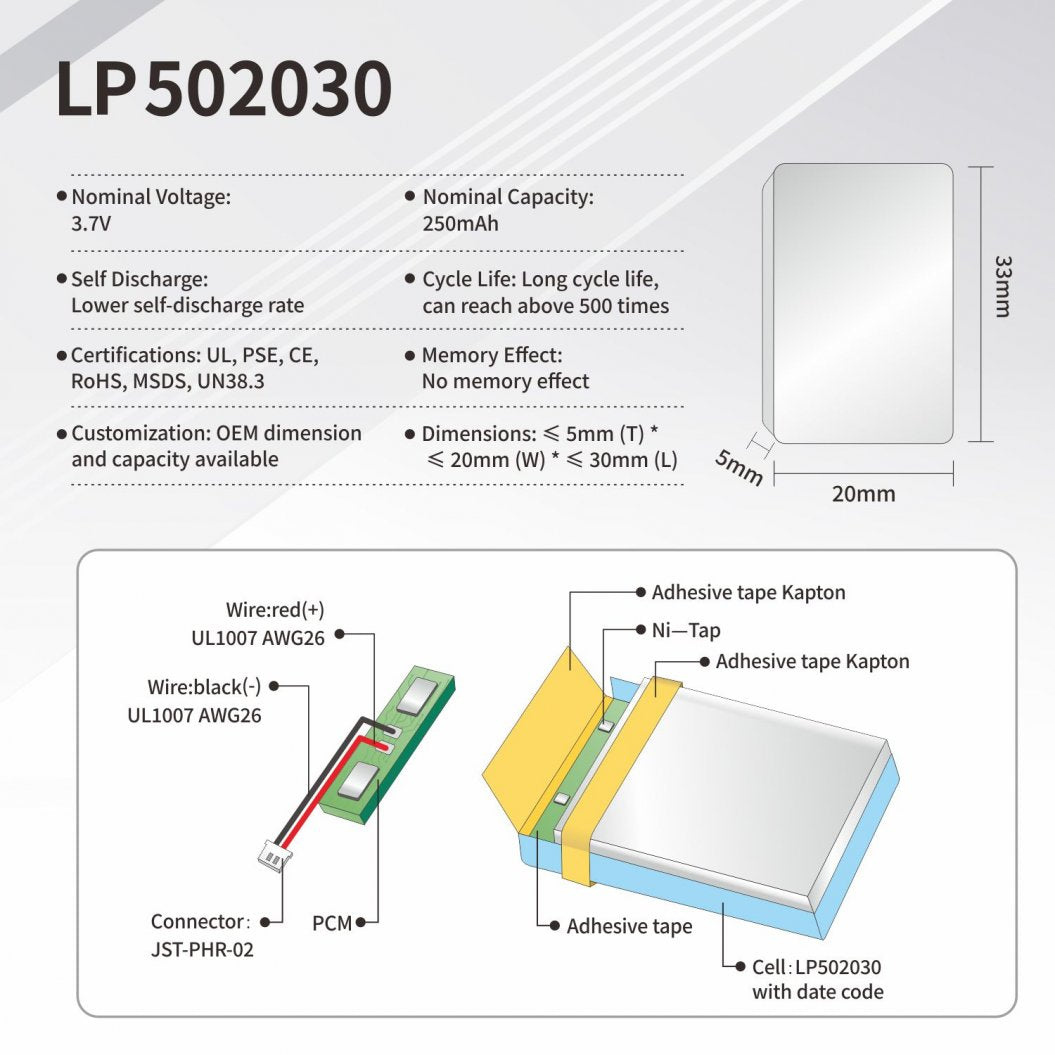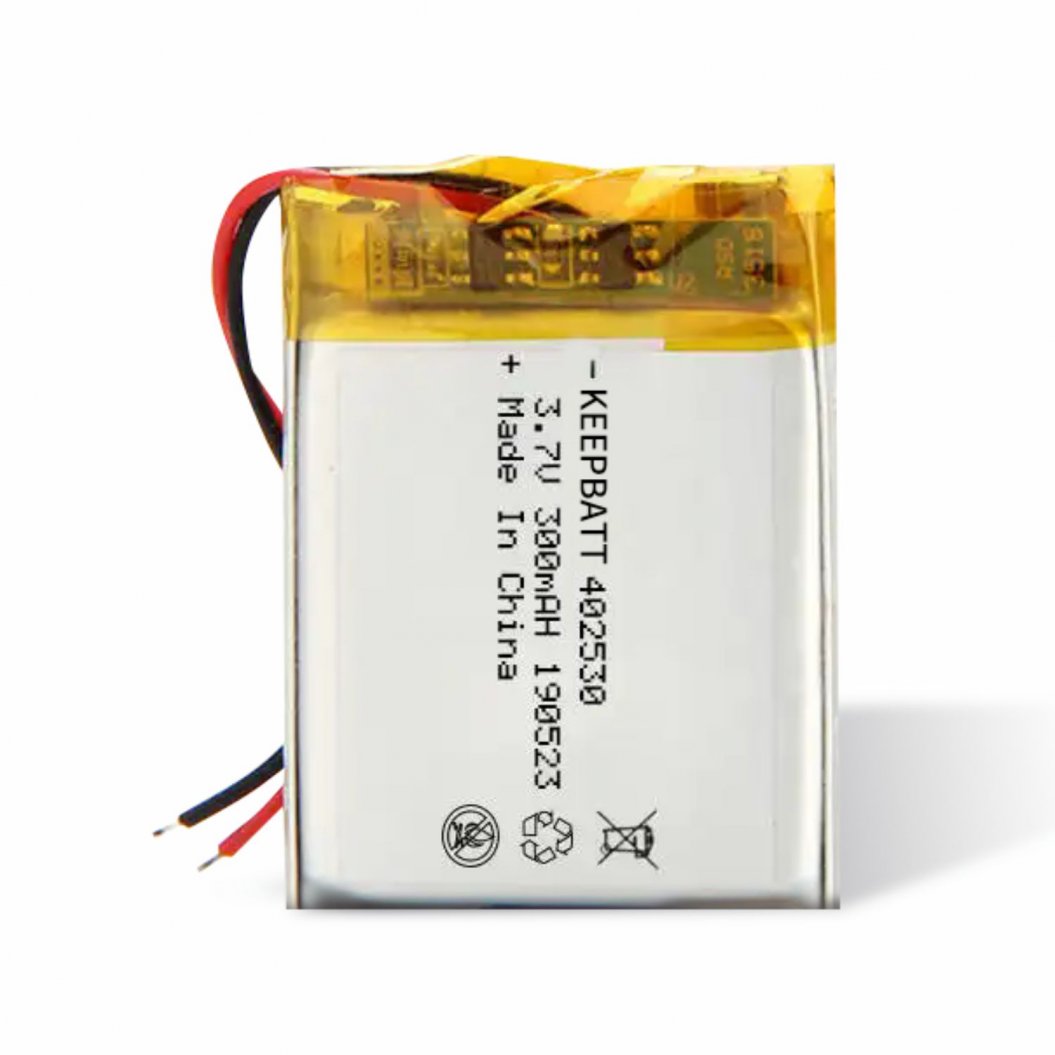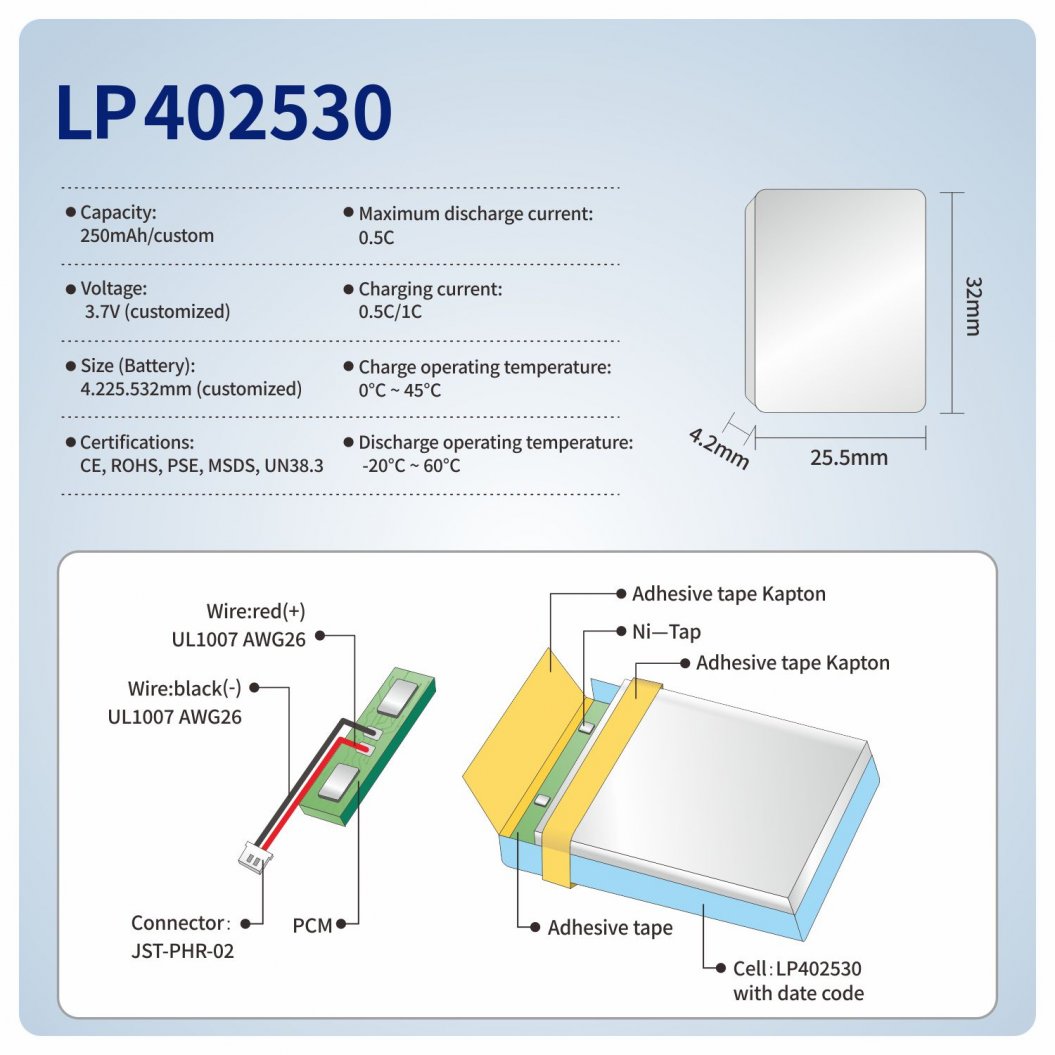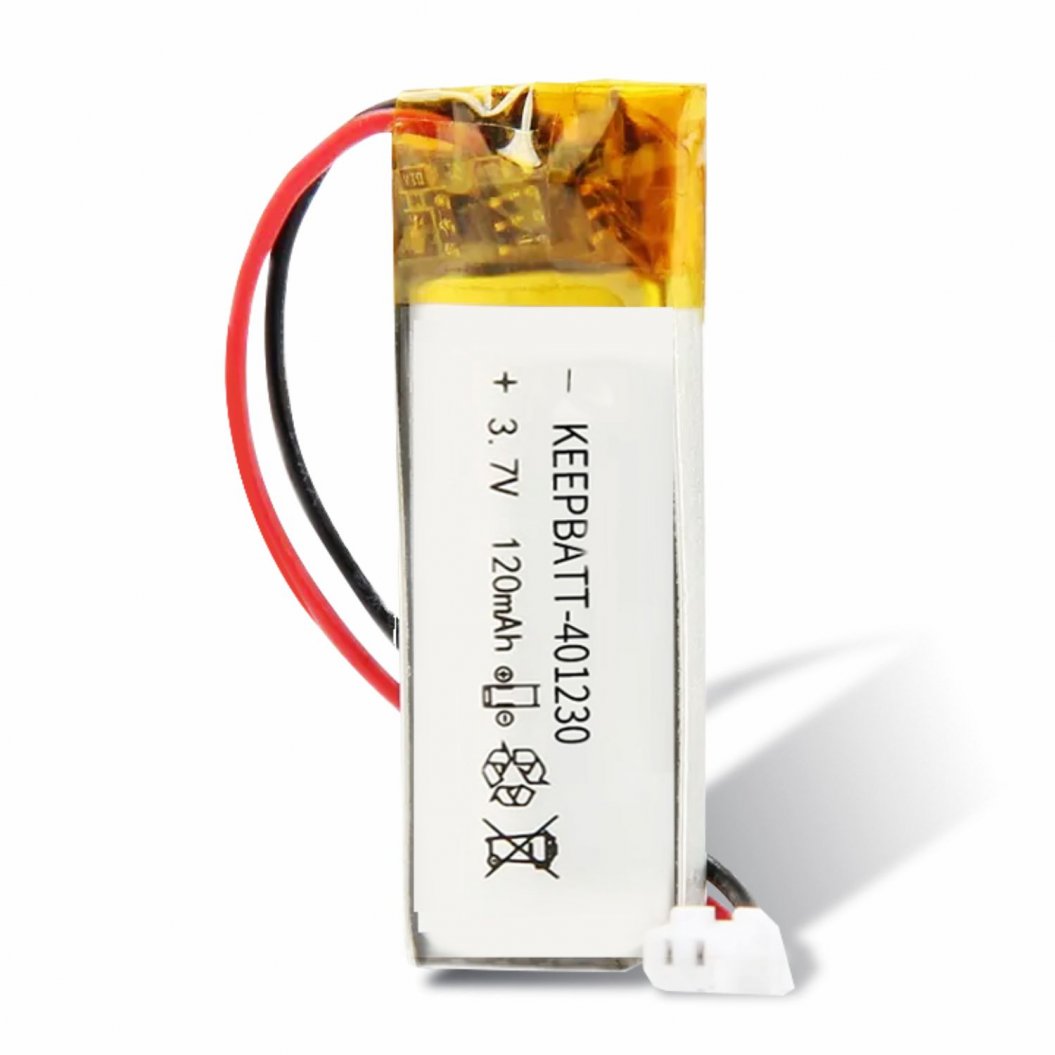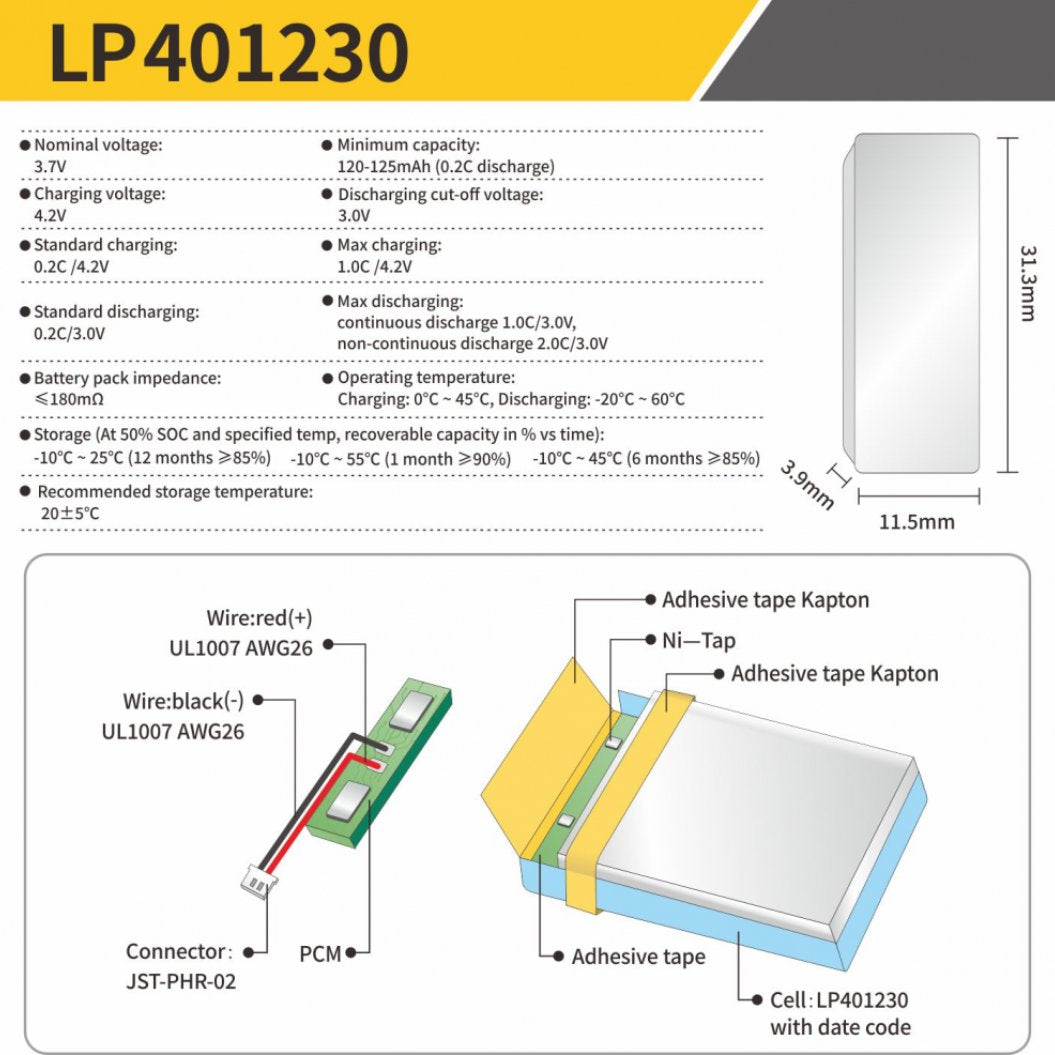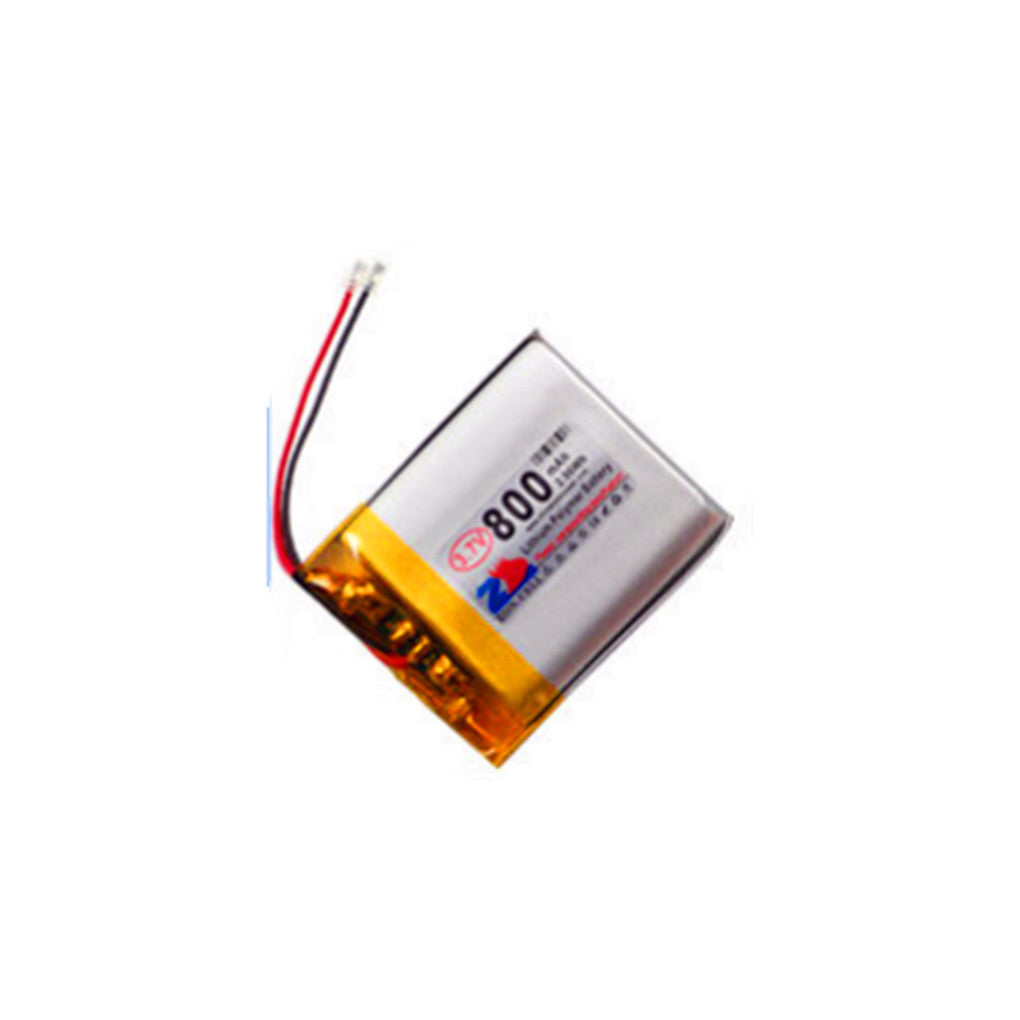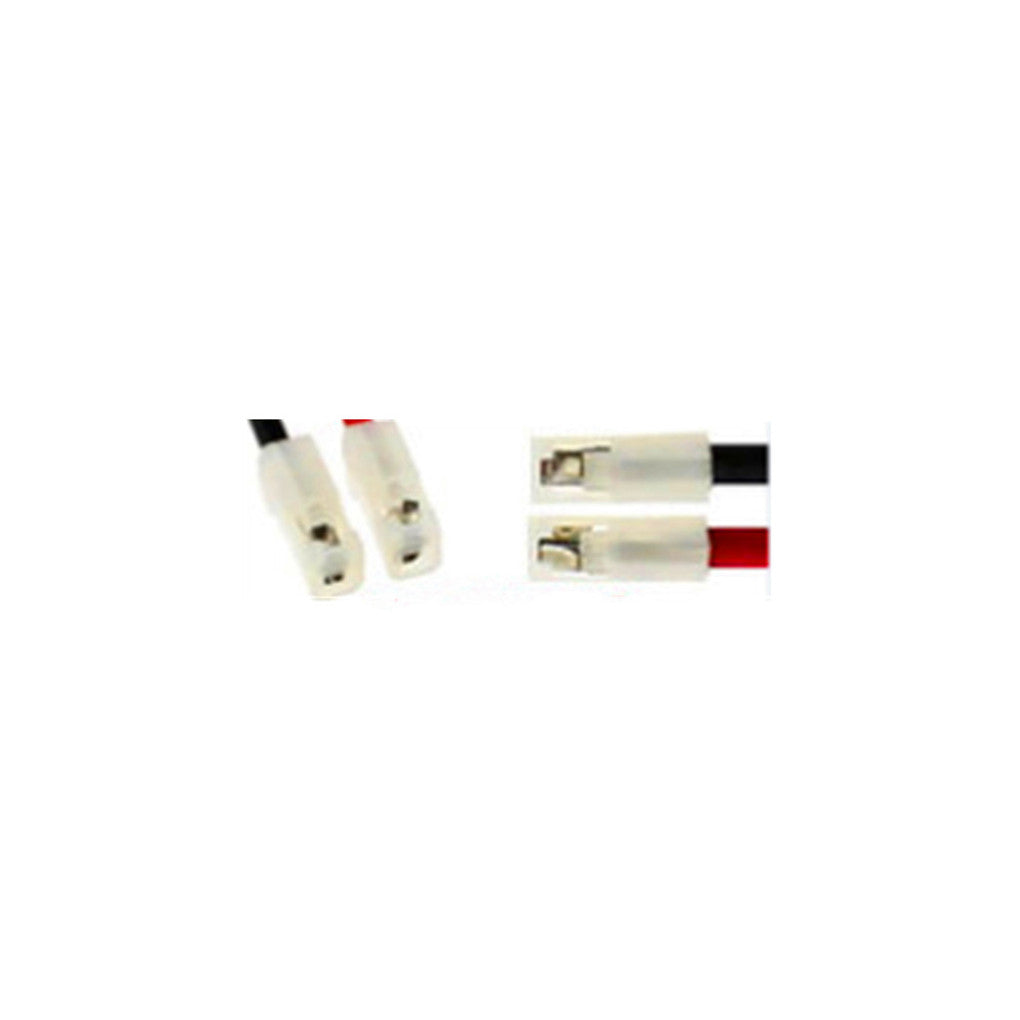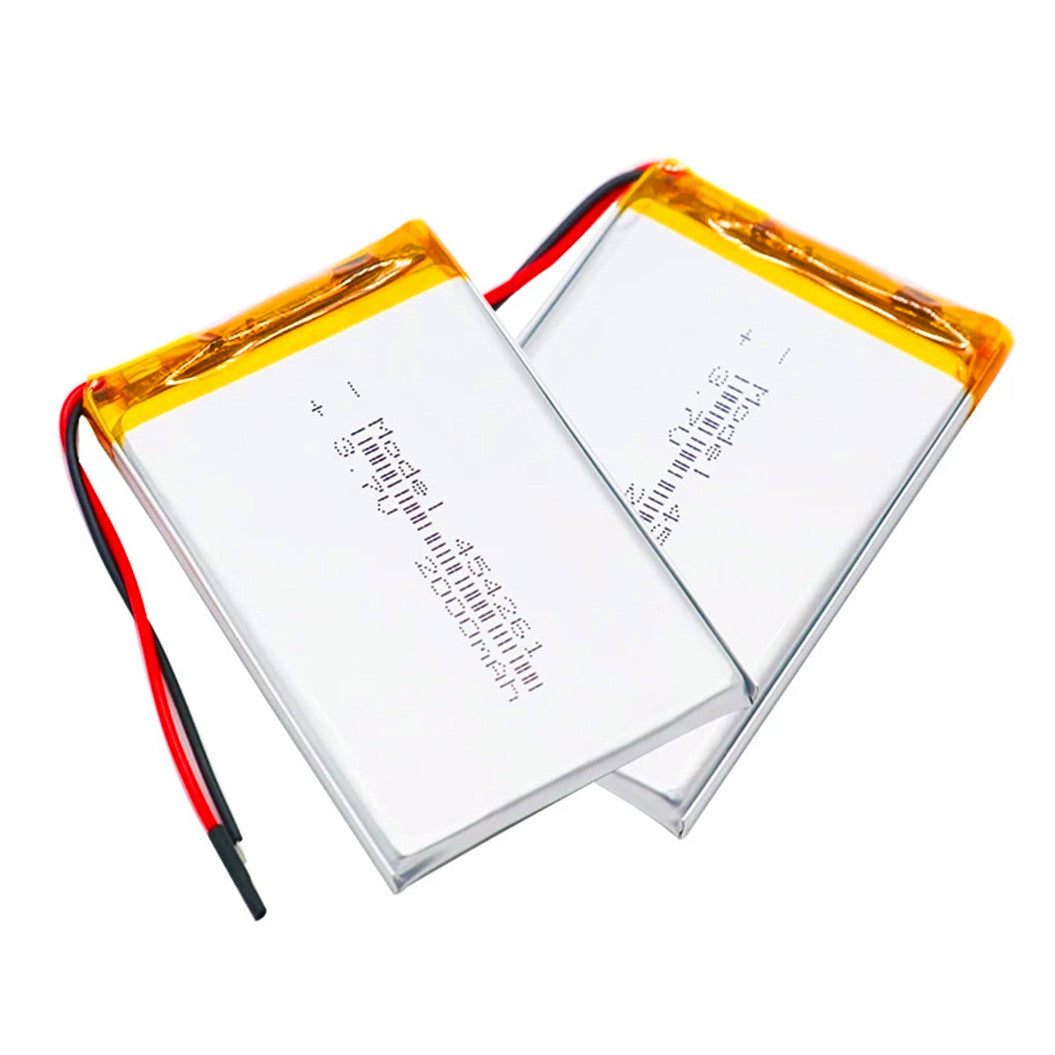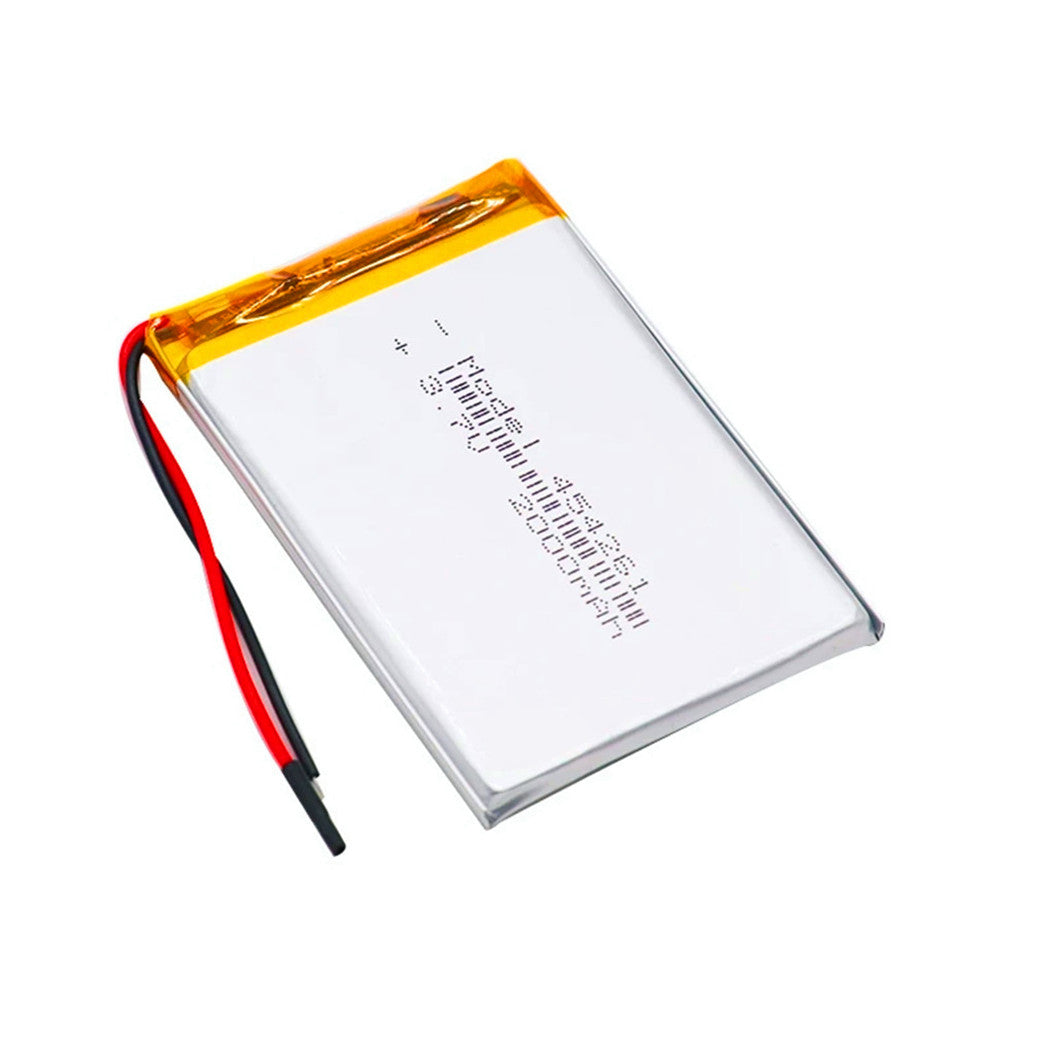-
販売元:BATTERYINT
3.7V 6000mAh 906090 LiPo Battery Rechargeable 1S 3C with Protection Board PH2.0A Plug for Arduino ESP32 Board RPI Battery Pack
- 通常価格
- $11.90
- 通常価格
-
- セール価格
- $11.90
- 単価
- あたり
3.7V 6000mAh 906090 LiPo Battery Rechargeable 1... -
販売元:BATTERYINT
3.7V 900mAh 603450 LiPo Battery Rechargeable 1S 3C with Dual Battery PCB Micro PH2.0 Plug for IoT PDA Camera GPS Smart Development
- 通常価格
- $9.99
- 通常価格
-
- セール価格
- $9.99
- 単価
- あたり
3.7V 900mAh 603450 LiPo Battery Rechargeable 1S... -
販売元:BATTERYINT
3.7V 5000mAh 105080 LiPo Battery Rechargeable 1S 3C with PCB PH2.0 Plug for Arduino ESP32 Board RPI
- 通常価格
- $11.90
- 通常価格
-
- セール価格
- $11.90
- 単価
- あたり
3.7V 5000mAh 105080 LiPo Battery Rechargeable 1... -
販売元:BATTERYINT
Intelligent Flight Replacement Battery 3750mAh for DJI Mavic Air 2/ DJI Air 2S Drone
- 通常価格
- $95.90
- 通常価格
-
- セール価格
- $95.90
- 単価
- あたり
Intelligent Flight Replacement Battery 3750mAh ... -
販売元:BATTERYINT
Intelligent 15.4V 5000mAh High Capacity Drone Replacement Battery for DJI Mavic 3 Pro DJI Mavic 3 Cine
- 通常価格
- $153.00
- 通常価格
-
- セール価格
- $153.00
- 単価
- あたり
Intelligent 15.4V 5000mAh High Capacity Drone R... -
販売元:BATTERYINT
KB-LP 903048 LiPo 3.7V 1000mAh リチウムポリマーバッテリー RC ヘリコプター用
- 通常価格
- $13.99
- 通常価格
-
- セール価格
- $13.99
- 単価
- あたり
KB-LP 903048 LiPo 3.7V 1000mAh リチウムポリマーバッテリー RC... -
販売元:BATTERYINT
KB-LP 701456 3.7V 450mAh リチウムポリマー充電式バッテリー (E-Reader 用)
- 通常価格
- $10.66
- 通常価格
-
- セール価格
- $10.66
- 単価
- あたり
KB-LP 701456 3.7V 450mAh リチウムポリマー充電式バッテリー (E-Re... -
販売元:BATTERYINT
KB-LP 502030 LiPo 3.7V 250mAh リチウムポリマーバッテリー Bluetooth ヘッドセット用
- 通常価格
- $10.45
- 通常価格
-
- セール価格
- $10.45
- 単価
- あたり
KB-LP 502030 LiPo 3.7V 250mAh リチウムポリマーバッテリー Blu... -
販売元:BATTERYINT
KB-LP402530 3.7V 250mAh Li-Polymer バッテリー ワイヤレス Bluetooth スピーカー、LED 用
- 通常価格
- $10.35
- 通常価格
-
- セール価格
- $10.35
- 単価
- あたり
KB-LP402530 3.7V 250mAh Li-Polymer バッテリー ワイヤレス ... -
販売元:BATTERYINT
KB - LP401230 3.7V 120mAh リポバッテリー 401230 125mAh リポポリマーバッテリー
- 通常価格
- $10.30
- 通常価格
-
- セール価格
- $10.30
- 単価
- あたり
KB - LP401230 3.7V 120mAh リポバッテリー 401230 125mAh... -
販売元:BATTERYINT
2個セット 3.7V 800mAh 2.54ユニバーサルプラグ 603040 ポリマーリチウムバッテリー(スピーカー・ボイスレコーダー対応)
- 通常価格
- $13.21
- 通常価格
-
- セール価格
- $13.21
- 単価
- あたり
2個セット 3.7V 800mAh 2.54ユニバーサルプラグ 603040 ポリマーリチウム... -
販売元:BATTERYINT
4pcs ポリマー電池 3.7V リチウム ポリマー電池 454261 2000mAh
- 通常価格
- $17.19
- 通常価格
-
- セール価格
- $17.19
- 単価
- あたり
4pcs ポリマー電池 3.7V リチウム ポリマー電池 454261 2000mAh 製品情...
ショーイング 157 -168 の 345 項目
1. How to Charge Lipo Battery?
These are the safe charging tips for LiPo batteries:
- Always use a charger specifically designed for LiPo batteries to prevent overcharging or undercharging.
- Before charging, set the charger’s current and voltage to match the battery’s specifications, typically at 1C, which is twice the battery’s capacity.
- During charging, place the lithium ion polymer battery in a fireproof bag or on a flat surface that is free of flammable materials.
- Closely monitor the lithium polymer battery during charging and ensure that it is not left unattended for extended periods.
- Always use a charger specifically designed for LiPo batteries to prevent overcharging or undercharging.
- Before charging, set the charger’s current and voltage to match the battery’s specifications, typically at 1C, which is twice the battery’s capacity.
- During charging, place the lithium ion polymer battery in a fireproof bag or on a flat surface that is free of flammable materials.
- Closely monitor the lithium polymer battery during charging and ensure that it is not left unattended for extended periods.
2. How to Store Lipo Battery?
When storing Lithium Polymer (LiPo) batteries, they should be kept at approximately 50% charge, which will help to prolong battery life. The lithium ion polymer battery should be stored in a dry, cool environment, away from direct sunlight and extreme temperatures.
In addition, batteries should be stored in a fireproof bag or special safety box to prevent accidents. In addition, if not used for a long period, perform a light charge and discharge every few months to maintain battery performance.
In addition, batteries should be stored in a fireproof bag or special safety box to prevent accidents. In addition, if not used for a long period, perform a light charge and discharge every few months to maintain battery performance.
3. What Is the Lifespan of a Lipo Battery?
In general, lithium polymer batteries can support approximately 300 to 500 charge/discharge cycles if properly used and maintained. To extend battery life, avoid overcharging and over-discharging, and keep the lithium ion polymer battery at the proper temperature during use and storage.
4. How to Prevent Lipo Battery from Expansion and Explosion?
These tips below prevent lithium polymer (lipo) batteries from expanding or explosion:
- Ensure that you are using a charger that is specifically designed for LiPo batteries and that you strictly follow the battery’s charging specifications.
- Avoid exposing the lithium polymer battery to extreme temperatures or direct sunlight during charging and use.
- Ensure that the lithium ion polymer battery is not physically damaged. Regularly inspect the battery for any signs of wear or damage.
- If the LiPo batteries show signs of swelling, discontinue use immediately to prevent further risks such as expansion or explosion.
- Ensure that you are using a charger that is specifically designed for LiPo batteries and that you strictly follow the battery’s charging specifications.
- Avoid exposing the lithium polymer battery to extreme temperatures or direct sunlight during charging and use.
- Ensure that the lithium ion polymer battery is not physically damaged. Regularly inspect the battery for any signs of wear or damage.
- If the LiPo batteries show signs of swelling, discontinue use immediately to prevent further risks such as expansion or explosion.
5. What Is the Difference Between a 4s Lipo Battery and a 3s LiPo Battery?
The main differences between 4s lipo batteries and 3s LiPo batteries are the number of cells and the total voltage. 3s batteries consist of three cells in series and typically have a voltage of 11.1 volts, while 4s batteries consist of four cells in series and typically have a voltage of 14.8 volts.
However, higher voltages may also require electronic equipment to have a higher voltage tolerance, so the voltage compatibility of equipment must be considered when choosing a lithium polymer battery.
However, higher voltages may also require electronic equipment to have a higher voltage tolerance, so the voltage compatibility of equipment must be considered when choosing a lithium polymer battery.
6. How Long Does It Take to Charge a 4s Lipo Battery?
Typically, most 4-cell LiPo batteries take about 1 to 1.5 hours to fully charge when charged at a 1C charge rate (i.e. the current value for the rated capacity of the battery).
For example, a 5000mAh battery will take about 1 hour to fully charge at 5A charge current. Ensure that you use the appropriate charger for your lithium polymer battery to maintain its health and safety.
For example, a 5000mAh battery will take about 1 hour to fully charge at 5A charge current. Ensure that you use the appropriate charger for your lithium polymer battery to maintain its health and safety.
7. Which Is Better, Lifepo4 or Lipo Battery?
LiFePO4 batteries are known for their longer life and increased safety. It is usually more suitable for applications that require long-term reliability, such as electric vehicles and solar energy storage systems.
LiPo batteries, on the other hand, offer higher energy density and power output. Ideal for devices with stringent weight and size requirements, such as UAVs and RC models.
LiPo batteries, on the other hand, offer higher energy density and power output. Ideal for devices with stringent weight and size requirements, such as UAVs and RC models.
8. Which Is Better, Nimh or Lipo Battery?
NiMH batteries are more environmentally friendly and less expensive, making them suitable for every day and low-power devices.
LiPo batteries, on the other hand, offer higher energy density and discharge rates, making them more suitable for use in high-power devices such as drones and high-performance RC cars.
LiPo batteries, on the other hand, offer higher energy density and discharge rates, making them more suitable for use in high-power devices such as drones and high-performance RC cars.

